Story & Photos By Nick Thomas
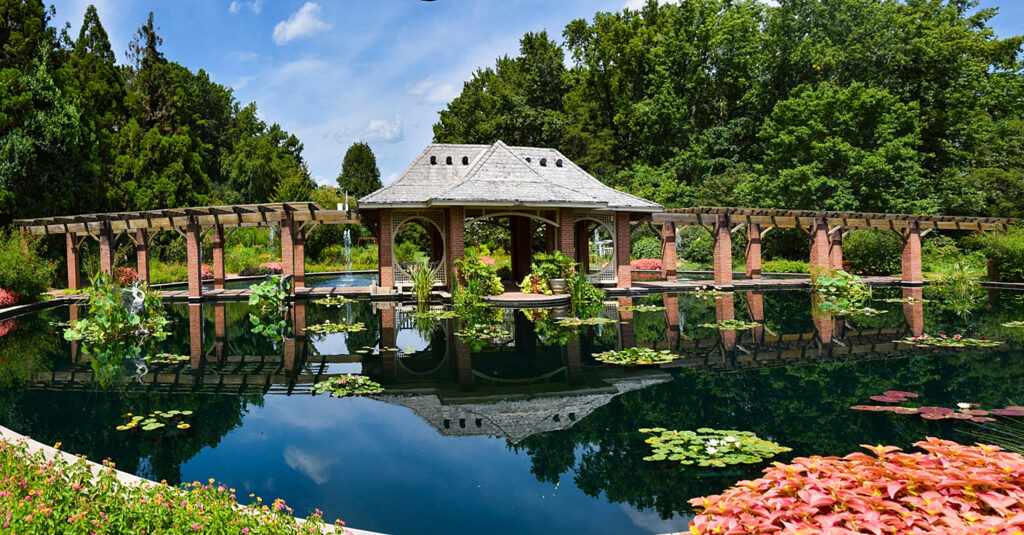
Initially created as the Huntsville-Madison County Botanical Garden Society by a group of local volunteers, the society lobbied the Huntsville City Council in 1980 and was granted 35 acres of land to establish what today has become the Huntsville Botanical Garden.
“The garden has grown since then to 118 acres,” says Laura McPhail, director of communications and guest experience for the public garden that’s open year-round in the heart of Huntsville on Bob Wallace Avenue. With over two miles of nature trails and walking paths connecting beautifully themed gardens, woodlands, meadows and water features, the gardens are an oasis in a thriving Alabama metropolis regardless of the season.
“One of the best things about being located in the South is that we can have flowering plants 365 days out of the year with additions like camellias, paper bush, and winter jasmine,” McPhail says. “When designing garden spaces, we always try to choose a plant palette that will provide four seasons of interest whether with flowers, fall color, or winter interest.”
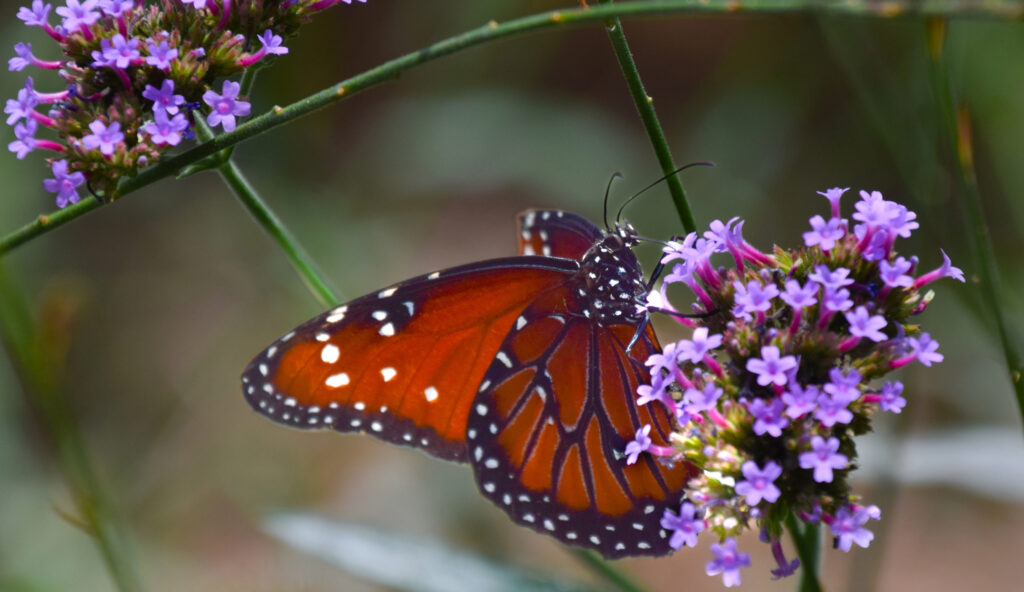
Annual flowering plants are replaced each year, with some overwintered in a greenhouse to grow larger and create a greater visual impact in the following season’s landscape. Perennials are usually rejuvenated every 3-5 years, which may involve lifting and dividing plants, adding soil amendment, or choosing a better performing variety, McPhail says. “There are so many types and new cultivars (varieties selected for specific characteristics) coming out every year that you wouldn’t want to keep using the same plants.”
The gardens are arranged around Little Smith Lake, just behind the Guest Center, with an astonishing diversity of features for visitors to discover including azaleas, dogwoods, birding trails, a stunning aquatic garden and numerous other themed gardens. There’s even a maze, a collection of fun oversized outdoor furniture to climb into, a family garden, and an impressive butterfly house.
“Huntsville Botanical Garden is home to one of the largest open air butterfly houses in the country,” McPhail says. To be compliant with the Animal and Plant Health Inspection Service, an agency of the U.S. Department of Agriculture responsible for protecting animal health and welfare, butterflies are not raised at the gardens. “We order them from a butterfly farm which supplies us with adult butterflies and pupae. The butterfly house is one of our most popular areas.”
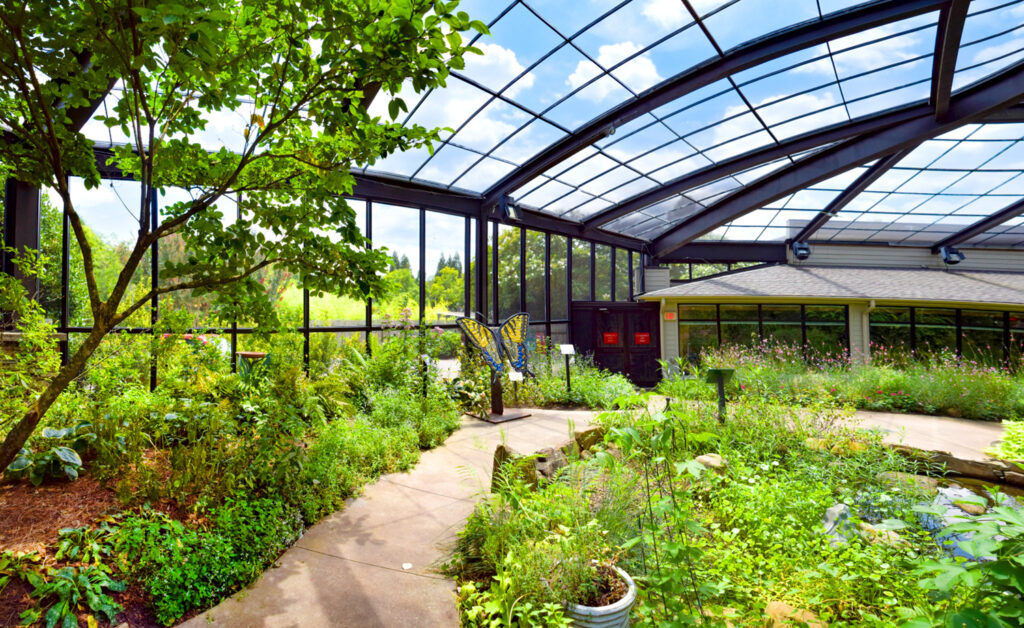
A year-round experience
Sections of the garden are periodically updated and this April a new area opened called the Mother Earth Troll Garden, featuring a colossal 20-foot-tall troll named Mama Zelda created by Danish artist Thomas Dambo, a world-renowned sculptor who uses recycled material to fashion his art.
While novelty exhibits definitely attract visitors, the gardens are the real stars. Colorful spring flowers bleed into the lush green carpet of summer’s shrubs and trees which give rise to a colorful
fall landscape.
“Some trees that produce the best fall color are maples, Chinese pistachio, sweet gum, and hickory,” McPhail says. “Some species are chosen for their fall color, but usually a selection of a species is chosen. For example, with our native red maple (Acer rubrum) there are many selections that produce more vibrant fall color than the trees found in the wild.”
In addition to garden displays and exhibits, Huntsville Botanical Garden hosts some 70 public events year-round including almost 10,000 participants (students and adults) from 128 school groups that attended STEM field trips
in 2024.
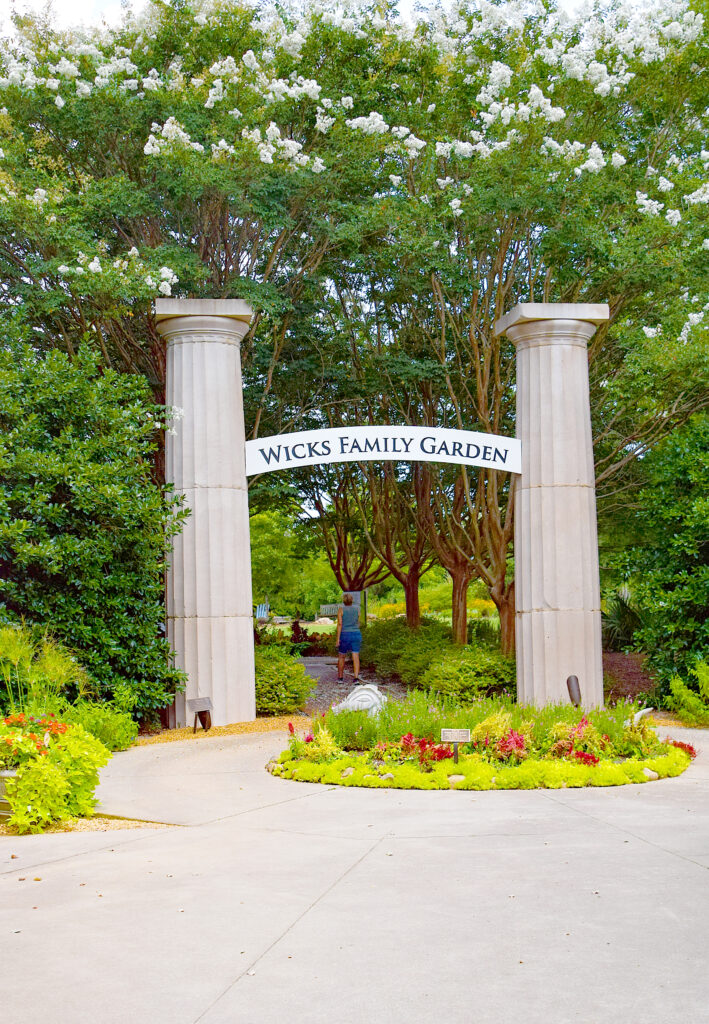
“From Fire & Ice in January to raptor shows and plant sales, annual 5K and 3K races, Shakespeare in the Garden performances, and all of the Festifall events, we have something for everyone,” McPhail says. “This summer we will host a Father’s Day Field Day event and a Summer Solstice concert in June. Shakespeare in the Garden will be back for three weekends in July and August and this year they will perform Macbeth and The Comedy of Errors.”
During the warmer months, visitors can also experience firefly garden hikes and butterfly releases, while the traditional Galaxy of Lights in November/December allows visitors to “revel in the joy and beauty of the season.”
With extended hours from May through September (closing at 8 p.m.), dusk is a popular time to visit the gardens. “Visitors enjoy the sunset from a variety of areas, but many love to bring their camping chairs and sit by the Floral Promenade adjacent to Little Smith Lake,” McPhail says.
Huntsville Botanical Garden continues to evolve and grow, with a Master Site Plan updated in 2024. It’s designed, McPhail says, “for continuing long-term plans for thoughtful and strategic stewardship of the land.”
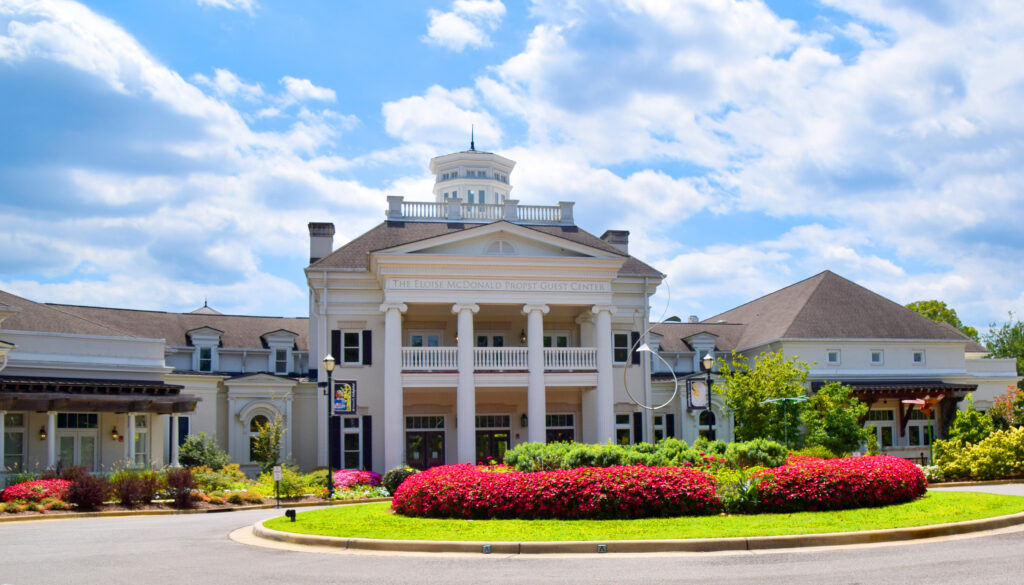
Huntsville Botanical Garden is located at 4747 Bob Wallace Avenue in Huntsville. Admission is $19 for adults, with discounts for students, seniors, and military. Open 7 days from 9 a.m. (11 a.m. on Sundays) until 6 p.m., with extended hours until 8 p.m. May-September. Call 256-830-4447 or visit hsvbg.org for more information or to see the calendar of events.
ALABAMA’S OTHER PUBLIC GARDENS
If you can’t make it to Huntsville, there are plenty of other public gardens around the state that will allow for a family-friendly outing, lots of blooms and beauty and some refreshing shade.
Bellingrath Gardens and Home
12401 Bellingrath Gardens Road,
Theodore, AL 36582
Bellingrath.org
Aldridge Gardens
3530 Lorna Road,
Hoover, AL 35216
Aldridgegardens.com
Mobile Botanical Gardens
5151 Museum Drive,
Mobile, AL 36608
Mobilebotanicalgardens.org
Birmingham Botanical Gardens
2612 Lane Park Road,
Birmingham, AL 35223
Bbgardens.org
Dothan Area Botanical Gardens
5130 Headland Ave.; look for the sign
on U.S. Highway 431 between Dothan and Headland
Dabg.com
Montgomery Botanical Gardens at
Oak Park
1010 Forest Ave.,
Montgomery, AL 36106
Montgomerybotanicalgardens.com
Donald E. Davis Arboretum
181 Garden Drive,
Auburn, AL 36849
Auburn.edu/cosam/arboretum




